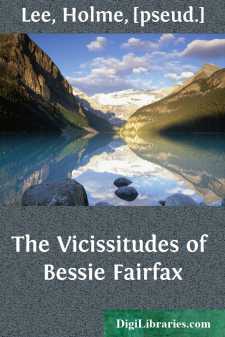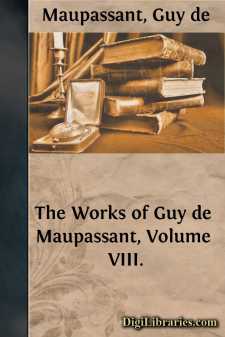Literary Collections
- American 84
- Ancient, Classical & Medieval 14
- Asian 1
- Australian & Oceanian 1
- Canadian 55
- Continental European 121
- English, Irish, Scottish, Welsh 179
- Essays 160
- General 24
- Letters 46
- Middle Eastern 1
Literary Collections Books
Sort by:
by:
Nat Gould
CHAPTER I "WILL HE MARRY HER?" "Do you think he will marry her?" asked Harry Morby. "Does anybody know what he will do," replied Vincent Newport, discussing their host Alan Chesney, of Trent Park, a beautiful estate in Nottinghamshire, close to the Dukeries, Sherwood Forest, and the picturesque village of Ollerton. In the billiard room they had just finished a game of a hundred...
more...
by:
Horace Walpole
Letter 1 To George Montagu, Esq.Arlington Street, Nov. 17, 1759. (page 25) I rejoice over your brother's honours, though I certainly had no hand in them. He probably received his staff from the board of trade. If any part of the consequences could be placed to partiality for me, it would be the prevention of your coming to town, which I wished. My lady Cutts(1) is indubitably your own grandmother:...
more...
CHAPTER I. She was certainly very pretty, and just then she looked prettier than usual, for the sharp run had brought a more vivid colour to the cheek, and an added sparkle to the eye. She was laughing, too—the rogue—as well she might, for had she not brought her right hand swiftly down upon his left ear when he had chased her, caught her, and deliberately and maliciously kissed her, and did he not...
more...
RED HANRAHAN. Hanrahan, the hedge schoolmaster, a tall, strong, red-haired young man, came into the barn where some of the men of the village were sitting on Samhain Eve. It had been a dwelling-house, and when the man that owned it had built a better one, he had put the two rooms together, and kept it for a place to store one thing or another. There was a fire on the old hearth, and there were dip...
more...
by:
Holme Lee
CHAPTER I. The years have come and gone at Beechhurst as elsewhere, but the results of time and change seem to have almost passed it by. Every way out of the scattered forest-town is still through beautiful forest-roads—roads that cleave grand avenues, traverse black barren heaths, ford shallow rivers, and climb over ferny knolls whence the sea is visible. The church is unrestored, the parsonage is...
more...
One of the most amusing questions concerning the short story is why a form which is singly so attractive that every one likes to read a short story when he finds it alone is collectively so repellent as it is said to be. Before now I have imagined the case to be somewhat the same as that of a number of pleasant people who are most acceptable as separate householders, but who lose caste and cease to be...
more...
by:
Alexander Smith
DREAMTHORP It matters not to relate how or when I became a denizen of Dreamthorp; it will be sufficient to say that I am not a born native, but that I came to reside in it a good while ago now. The several towns and villages in which, in my time, I have pitched a tent did not please, for one obscure reason or another; this one was too large, t'other too small; but when, on a summer evening about...
more...
HENRY CUYLER BUNNER (1855-1896) The position which Henry Cuyler Bunner has come to occupy in the literary annals of our time strengthens as the days pass. If the stream of his genius flowed in gentle rivulets, it traveled as far and spread its fruitful influence as wide as many a statelier river. He was above all things a poet. In his prose as in his verse he has revealed the essential qualities of a...
more...
OF "THE NOVEL" do not intend in these pages to put in a plea for this little novel. On the contrary, the ideas I shall try to set forth will rather involve a criticism of the class of psychological analysis which I have undertaken in Pierre et Jean. I propose to treat of novels in general. I am not the only writer who finds himself taken to task in the same terms each time he brings out a new...
more...
by:
Kuno Francke
BISMARCK AS A NATIONAL TYPE[1] BY KUNO FRANCKE, PH.D., LL.D., Litt.D. Professor of the History ofGerman Culture, Harvard University. No man since Luther has been a more complete embodiment of German nationality than Otto von Bismarck. None has been closer to the German heart. None has stood more conspicuously for racial aspirations, passions, ideals. It is the purpose of the present sketch to bring out...
more...











